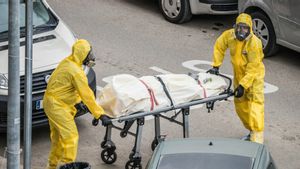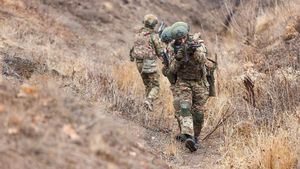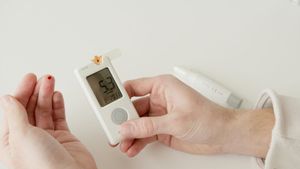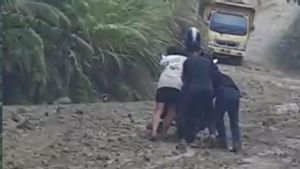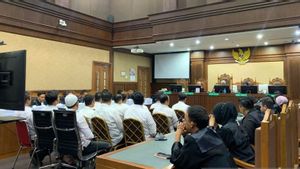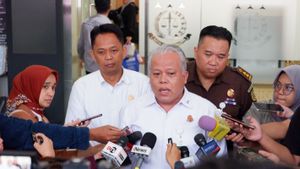JAKARTA - The head of the IDAI Tropical Infection UKK, Dr Anggraini Alam, said that children are vulnerable to infection while traveling. Both tourist trips and Eid homecoming. "Travel includes departure, mode of transportation to the destination to return to the family, children are very likely to be exposed to food contaminated with microorganisms," said Dr. After going home, continued Dr. Anggi, the main thing he complained about was fever. According to him, there is a normal temperature measurement range. "Now the normal temperature is 36.8 degrees, compared to the previous modern people, the temperature is colder," he said. Dr Anggi said that the highest temperature occurred at 9 am with a temperature range of 36.4 to 37 degrees. Meanwhile, during the day at 13.00, the body heat temperature is only 35.9 to 36.5 degrees. "In fact, at night the highest. If you touch the forehead, the possibility of a child's fever is 84 percent. If the child's fever is more than 37.5," he explained. Dr. Anggi reminded that the symptoms of a child's fever after Eid were not only COVID-19, but it was important to remember that there was an influenza attack that caused symptoms of a headache and sore throat. As well as other diseases that arise due to fever. "Children who play, get injured, and don't bathe can be leptospira. Therefore, all infectious diseases show fever," he said. Another disease that causes a child's fever, continued Dr. Anggi, is a urinary tract infection due to holding back urination or changing diapers late. "When a child has a fever, ask when the fever started, what signs appear, what are the child's activities, and what they eat and drink," he said. During the COVID-19 season, said Dr. Anggi, immediate examination was very helpful because it had to do with very easy transmission. By knowing quickly, isolation can be carried out immediately. "Most of the children are not heavy, so doing a quick check in the COVID-19 era is very helpful," he said. Actually, explained Dr. Anggi, fever is normal to fight germs. Fever can suppress microorganisms to grow. However, if the child is not comfortable then give fever-reducing medication. "When is the treatment, namely if the temperature is 38 degrees. If the seizure is treated with anti-seizure drugs. But never use cold compresses, because they will increase the temperature. Alcohol compresses are more dangerous because the vapor is toxic, give Paracetamol," he explained. Dr. Anggi suggested, if the child has had a fever for three days, then immediately go to the doctor. Moreover, the temperature has reached 39 degrees. "Moreover, a mysterious hepatitis appears, so cook food thoroughly, don't borrow cutlery, don't make it a habit to eat snacks that we don't know the cleanliness of. Keep wearing masks, wash your hands, keep your distance from crowds," he said. "Complete also immunizations. After the Eid holiday there is a potential for infection, the symptoms are fever. Check with the doctor and tell the history," he concluded.
The English, Chinese, Japanese, Arabic, and French versions are automatically generated by the AI. So there may still be inaccuracies in translating, please always see Indonesian as our main language. (system supported by DigitalSiber.id)



